(Part 2) Best econometrics books according to redditors
We found 315 Reddit comments discussing the best econometrics books. We ranked the 136 resulting products by number of redditors who mentioned them. Here are the products ranked 21-40. You can also go back to the previous section.

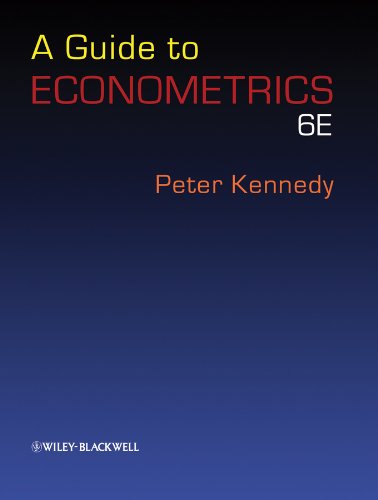
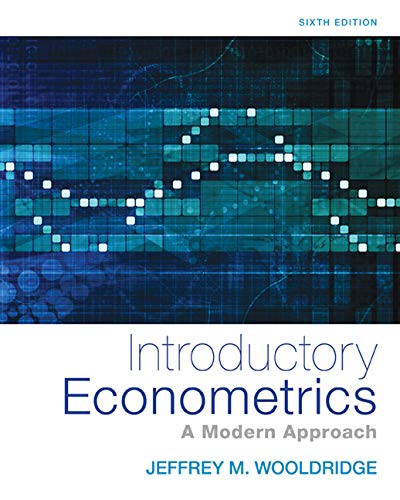







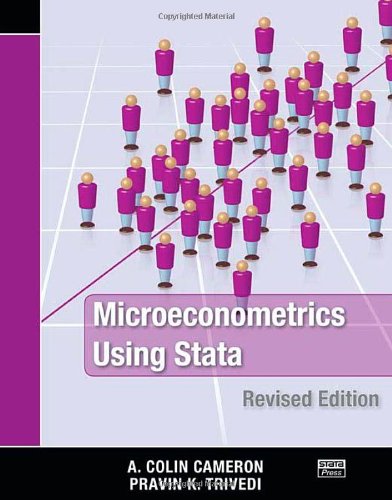
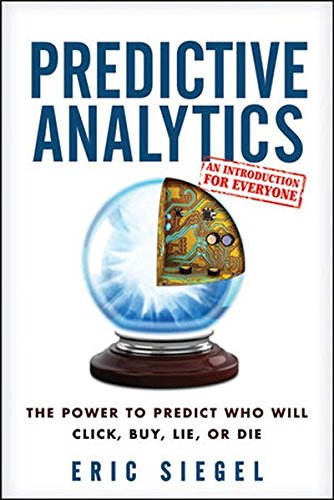


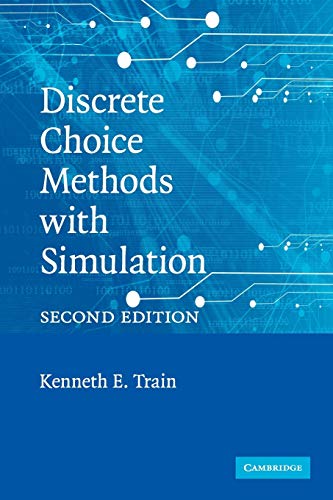





My two favorite books which introduce economic thinking are Armchair Economist and The Undercover Economist. They're quick reads, they're jargon free, and actually teach some of the thinking. Unlike the pop-econ books (Freakonomics and its ilk), which are simply about strange results from research (some of Landsburg's later books suffer from this problem). For an introduction to behavioral economics, you can't do better than Predictably Irrational.
For substance, textbooks are probably best unless you have a carefully chosen list of academic articles. Wooldridge for Econometrics, Mankiw for introductory macro, and Nicholson for introductory micro (Krugman's micro book is fine too). Mankiw writes my favorite econ textbooks. For game theory, I used an older version of Watson's textbook, and it was fine, but I don't know how other game theory books stack up.
If textbooks are a bit much, but you still want a substantive book, the first chapter of Thomas Sowell's introduction is very good, the rest is decent repetition. If you want a some discussion of discredited economic theories that are still trotted out regularly (like trickle down), Zombie Economics is a really fun read.
The linear part of linear regression refers to the coefficients, not the variables. For example Y = aX + bX^2 is a linear model because it is a linear combination of X and X^2 involving a and b. Y = abX is not a linear model. You can fit a lot of models that are not linear using linear regression. The name is kind of misleading, I think.
Without knowing it, you're asking a gigantic question. You want to know how to fit regression models. That can take up two graduate level courses, if you're learning all the details. A good introduction is by Simon Sheather (Amazon Link). If you're a student, you can read that book for free from SpringerLink. There should be courses on regression modeling from Coursera and MIT Open Courseware, if you'd prefer that. Linear regression and generalized linear regression are fundamental tools that you just need to know if you're going to do any kind of statistics.
I'm sorry I can't answer your question directly. You really need to understand a little more about regression to build good models. For any given datasets, there's a handful of different ways, with varying degrees of validity, to model relationships among variables.
As an Economics PhD student, I agree with most of what you've written, but I'm not sure I would characterize the texts you recommend as introductory. Unfortunately, until the graduate level, most economics texts are lacking in formalism, largely because the undergraduates they are aimed at tend to lack background in mathematics. The texts written at the graduate level have the formalism, but presuppose a degree of familiarity with concepts and jargon.
The Mas-Collel is indeed the standard for formal micro, and I would direct the OP to Hirshleifer for a companion that fills in the background and intuitions that might be lacking in that text.
Macro is definitely less accessible, at least to me, but for a recommendation, I think basically everyone uses Romer as the first heavy-duty macro text right now. I can certainly share the sort of Socratic feeling towards macroeconomics, though, the more I learn about it the less I feel confident in saying about the world beyond the models.
Specifically, my focus is in applied econometrics, and I recommend Kennedy to everyone who expresses any interest in the topic. Kennedy employs an approach that I particularly enjoy, where he divides each section into thirds: one for an intuitive explanation, one for an overview of the math, and one for in depth consideration of the method and citations.
EDIT: I was looking over your comments about peppajac217's recommendation, and I scrolled down to examine them. I would second your advice about avoiding those texts, as they are Austrian pop-econ, and involve no formalism at all, making them particularly ill-suited to this request.
> Oh, and the different between men and women for the De-Individuated is 0.04375, or 1.6 - 1.55625 = 0.04375. Sooo... < 0.05 is significant, but < 0.04 is not?
Not sure if you're serious here, but the question is not whether a difference of 0.04 is meaningful, but whether the difference in sample means was statistically significant. This means, is it different enough that you would not find such a difference in means just by virtue of noisy data. The 0.05 number that people talk about is not just a difference in means of 0.05 (whatever the unit of measure is), but rather, a p-value of less than 0.05, indicating that the results of the study would only be expected to be wrong 5% of the time. The people you're responding to are using significant in the technical sense. Their point is that, from the sample size and the difference in means, the original authors correctly noted that we cannot claim statistical significance. Given the generally accepted cutoff of 0.05, this means that you're likely to get results like these by random noise in the data, and be wrong more than 1/20th of the time.
In order to do the appropriate calculations, you would need to know the sample sizes (among other things). You can't just find the difference in means and make inferences based on whether the number seems important. If you're interested in sharpening your statistical skills, I highly recommend A Modern Approach to Regression with R, and for more on this kind of problem, Nonparametric Statistical Methods may prove appropriate, given that this can be reduced to comparing pre- and post-treatment means (where individuation is the 'treatment').
Simon & Blume is basically the book that covers the preliminaries you need for the mathematics you'll encounter in economics at the PhD -level. FMEA has a bit more coverage, for instance in topology and stuff like this. If I were you, however, I'd start with S&B and move onto FMEA afterwards.
After (or alongside) these you might want to check out De la Fuente's book.
Also in addition to these you need something to cover topics in real analysis, especially to dissect micro papers. Rudin's principles or Royden's book I suppose are popular choices. One other book, which I think is pretty OK (heh) is OK Efe's Real Analysis with Economic applications.
For mathematical statistics, you might want to pick up Casella & Berger or something on that level.
There are lots of books on Amazon, but this seems to be what you'd be looking for: http://www.amazon.com/Applied-Econometrics-R-Use/dp/0387773169
Personally, I wouldn't spend too much money on a book teaching you how to code. When it comes to programming (especially higher level data programming) there are tons of free resources online which can help you figure out what to do. This is likely the best way for you to go with regards to preparing for a job using R, SAS, Stata, Python, ect. since you'll likely be asked to program something on the job and have to use online sources to learn how to do it. Additionally, I'd advise you to look into resources such as this: http://www.r-bloggers.com/how-to-learn-r-2/ which lead you through data programming and analysis in R. Hopefully this was helpful!
P.S. Python is extremely useful (maybe not particularly for econometric analysis) and I wouldn't be dissuaded from learning it if I were you--lots of employers like to see it on a resume.
I'd say grab an econ math book and an econometrics book, and start working through them, and if you can handle them OK you're OK.
Math book: https://www.amazon.com/Mathematical-Methods-Models-Economists-Fuente/dp/0521585295
Econometrics book: https://www.amazon.com/Econometric-Theory-Methods-Russell-Davidson/dp/0195123727
The border adjustment tax is a (small) export subsidy when trading with VAT countries; I doubt it'll pass WTO muster, but who knows. If it does, we'll get to see how fast exchange rates adjust! I expect the overall impact to be small, but I do think we need to export more, so we might as well try it. Changing the tax code to favor debt less is more important IMO.
http://www.amazon.com/Mathematical-Methods-Models-Economists-Fuente/dp/0521585295
This doesn't look like RA so much as "higher math for economists." Regardless, the best way to thrive in a higher math course is to form a study group with fellow students. Go to all the prof and TA's office hours. Never get behind. Read half a chapter ahead so you always know what the lectures are about. Work your ass off.
Try this or this
Train should probably be on the metrics list.
In addition to linear regression, do you need a reference for future use/other topics? Casella/Berger is a good one.
For linear regression, I really enjoyed A Modern Approach to Regression with R.
Freakonomics
How about this?
http://www.amazon.com/Econometric-Methods-Applications-Business-Economics/dp/0199268010
I had this book, apart from Wooldridge and Greene later on, in an introductory course in my Master's program. It has helpful exercises and has a very nice approach of easing one into more and more matrix algebra.
I agree with most that doing some practice with it is probably the easiest, especially if you've already got a lot of knowledge of programming (ie it'll be easy to pick up). Grab something like Cameron and Trivedi as a nice reference, though I don't know if it's the most up to date. I don't know that it's the best text for learning, but will have a wide range of topics that you can easily reference as you approach problems.
&#x200B;
Have you taken a bunch of stats and/or econometrics? If so then I'd just do some replications of papers Joshua Angrist's site has quite a few that are fairly intuitive and approachable. Also William Evan's has a nice teaching page for learning to use Stata. I link the undergraduate one, but the graduate one is also useful as well and will be pretty approachable if you've had a solid background in stats and econometrics.
You might want to take a look at this:
https://www.amazon.com/Marketing-Research-Analytics-Use/dp/3319144359/ref=nodl_
Really good book and he uses R :-)
seconded, great book. if you want something a bit less technical try masterin' metrics, same authors
I'd recommend against using Shumway and Stoffer's book. I used it in an undergrad class and we all found it really confusing and riddled with typos. Plus they makes you use his own package instead of zoo or forecast. But on the bright side Stoffer has it online for free.
I'm actually using Cowpertwait now and it's been a much better resource with better R code.
Wrong. Time series logarithmic scales are pretty close to the % change from the previous year.
Your scale on the other hand uses nominal dollars. For that reason the graph looks almost identical to a compounding interest graph (because that is essentially what it is, with inflation instead of interest)
I ran this data starting in 1800 through STATA and it appears identical to the graph you posted at first glance. Directly beside that is the YoY%Δ. You can check their numbers yourself.
If you take a look at the data 1982 - 2018 has been the most stable period ever.
If you have any desire to learn about econometrics I recommend Introductory Econometrics: A Modern Approach by Jeffrey M. Wooldridge
> I'm trying to create a forecasting model to predict ...was hoping someone could point me in the right direction with documentation, vignetts, papers that could help me figure this out, or ideas on how you would approach this problem.
Well you are in luck, there is an entire book that answers what you are trying to accomplish, and spells out the steps how to do it.
https://www.amazon.ca/Introductory-Time-Paul-S-P-Cowpertwait/dp/0387886974/ref=sr_1_1?keywords=introductory+time+series+r&amp;qid=1574873740&amp;sr=8-1
It may also be available for free through other means.
The specific chapters you want will probably be two and three (correlation, and forecasting strategies), though the rest of the book will likely be beneficial as well.
> I have some but I am not super well versed in the matter. (with regards to R and programming skills)
If that’s the case, it might be difficult to implement what is in the book. It assumes you know R at probably around a low/mid level. But if you power through you should be able to get some good out of it.
Also be aware that according to some of the reviews. the source code and data does not appear to be online any more. That makes direct copy and pasting the examples difficult, but if you are applying it to your own data set only, that might be less of an issue.
Its a pretty good book (its the one I read on forecasting originally), and it will get you going in the might direction but its not perfect and you might be able to find a more current one with available sample data. Read the reviews.
Get started and let me know how it goes :)
EDIT
All of the data, as well as functions and R code are indeed available online. Just had to look for it:
http://www.maths.adelaide.edu.au/emac2009/
Edit 2:
Here is are a few newer books as well. I skimmed it quickly and it may or may not be better:
http://db.ucsd.edu/static/TimeSeries.pdf
Again, you are looking at autocorrelation and forecasting. This one may lean a bit more on the math side.
/EDIT
Yeah, definitely. Here's the link
It's primarily for people new to R and with a focus on marketing analytics so I'm not sure how helpful it'll be to you. I like it a ton though since I have no formal programming training, so unlike other books I've looked into, it doesn't assume I have a background in CS or a high level degree in Statistics/Math.
"Predictive Analytics: The Power to Predict Who Will Click, Buy, Lie, or Die" – Eric Siegel
If you like books like "Freakonomics", you may enjoy this one. Similar style and depth, each chapter discusses interesting applications of PA, without getting really technical.
Razanov's Probability Theory was nice. It certainly won't cover everything you need to learn, but it requires the reader to put a great deal of effort into processing each proof, which helped me a lot with retention and application.
edit: Introductory Econometrics for Finance is great. I'd accidentally given you the wrong book earlier. Sorry!
edit #2: this is entirely unrelated but I'm reading it now and felt like sharing.
> The deflation will depend on how many whales to f2p players there will be in the game.
No it won't. Thats the beauty of a deflationary system, it will deflate regardless of the cash input.
>But I dont thing valve will allow people to 'go infinite' in this game based on their matchmaking mechanic. Experienced players will be matched to experienced players.
I think you'll get a few people managing it anyway. Going infinite in mtgo was about 25% maintaining a solid winrate in draft, and 75% understanding how to effectively play the deflationary market. Basically, the better your winrate, the stronger an edge you had on the secondary market. It's not a matter of Valve allowing people to go infinite:
>this will slow down the deflation as if I consider 50-50 odds , going to 3 wins would be an exception.
It's impossible to determine the speed of deflation but I would be surprised if it took more than 2-3 months, matchmaking isn't going to have much impact, as regardless of who wins or loses you get the same number of cards going into circulation, and the relatively flat rarity curve in this game is going to be a massive accelerant.
MTGO hit full deflation inside of 12 months, and it only took that long because of the insane rarity their foil/mythic rarities introduced and because they did it entirely on accident.
>So in expectation people would be losing money in the draft without cards entering in circulation.
The additional draft cost is to compensate for the prizepacks entering the economy. Money is still being paid for those cards, it's just you paying for someone elses cards... unless you win, then it's someone else paying for your cards.
The phantom draft complicates the hell out of the optics on this, but it's still adhering to a deflationary economic practice.
If you are looking for more detail on the subject I can suggest a couple of books.:
https://www.amazon.com/Deflation-What-Happens-When-Prices/dp/0060576456
This is a good guideline for the sort of market behaviors to expect in the early months.
https://www.amazon.com/Inflation-Stagflation-Relative-Imperfect-Information/dp/0521070848
This one will be a bit dense if you aren't familiar with the finance, but stagflation is really the only other viable market state for the economy they are creating, and it isn't something that gets a lot of coverage in traditional finance circles. Artifacts economy will likely see alternation between stagflation and deflation with brief inflationary spiking whenever an expansion, re-launch, or marketing push brings in new players.
I realize my excitement about this game as a brilliant participatory experiment in digital economics may be biasing me a little bit, but I don't think people are taking the time to understand whats really going on here... This is going to be an incredibly cheap game to play...
The textbook usually used is Introductory Econometrics by Wooldridge. Econometrics is an introductory course so as long as you remember the basics of stat 400 you'll be fine. There's stuff in stat 401 like point estimation and central limit theorem that would be useful, but I reckon most people haven't taken that class.
Uhm... in econometrics, I'd go with Woolridge (he has another book mostly on panel data but that is a graduate level textbook). I used Gujarati in my undergrad classes and didn't like it very much.
If you are more into macro-oriented time series econometrics, Enders is a great book, very practical and with a lot of examples. If you end up doing applied microeconometrics in Stata, Cameron and Trivedi have a great book for that.
I just stumbled upon this website that seems to have good info on econometrics texts which, as you can see, can be pretty pricey.
For higher level work:
http://www.amazon.com/A-First-Course-Optimization-Theory/dp/0521497701
It's the bible for first year graduate economic theory, in particular optimization theory.
Also consider Shaum's outlines.
I'm not really familiar with that book and it's not entirely clear from your question exactly what you're looking for.
Inflation is a hidden tax on the poor. Look no further than the recent 'gas crisis' to see how a modest increase in the price of just one commodity without wages rising to match that raise can affect the economy. I make enough not to care if gas is $2 or $5 a gallon... but my parents who are retired were sent into a tailspin when a trip to church every Sunday cost them 15 bucks in gas.
Deflation is painted as a monster, but it's misunderstood. Some deflation is bad, but you have to look at the reason for deflation and why the market is reacting to the stimulus in that manner. I'd highly recommend the book:
http://www.amazon.com/exec/obidos/tg/detail/-/0060576456
One of the basic issues is that overall demand falls because tomorrow (or next quarter, etc) things are cheaper. That's incredibly corrosive to pretty much everything in the economy.
Suggested reading: http://www.amazon.com/Deflation-What-Happens-When-Prices/dp/0060576456
If you already know the basics but need a good reference book, Peter Kennedy's A Guide to Econometrics is good.
For econometrics, the best thing you can do is get a copy of Kennedy's A guide to Econometrics: http://www.amazon.com/A-Guide-Econometrics-Peter-Kennedy/dp/1405182571
It explains the intuition behind lots of econometrics concepts without getting bogged down in formulas. Not to say that the formulas are not important, but if you are going through another rigorous econometrics text, this is handy to have as a supplement so that you can get the big picture and intuition of what you are doing. This book seriously should be mandatory for anyone starting a masters or phd.
There are lots of good recommendations on the technical side, (also, this for game theory and this is excellent intro into econometrics), but most economic insights are really very simple, and if you want to practice these ideas, I recommend blogs. These two are my favourite general blogs:
Marginal Revolution
Modeled Behaviour
https://www.amazon.com/Introductory-Econometrics-Finance-Chris-Brooks/dp/1107661455
Check out Thomas Sowell's Basic Economics. It's probably the best place to start for basic econ. But for something more data sciency, check out Carter Hill's Principles of Econometrics
Aha! Excellent question. Here's a few books and articles to start you off, trust me, none of these are any of that self-help book fodder, I wouldn't waste your time with any of that bullshit.
https://www.amazon.com/Net-Butterfly-Practice-Breakthrough-Thinking-ebook/dp/B01EH1EKO4/ref=sr_1_1?ie=UTF8&amp;qid=1494899664&amp;sr=8-1&amp;keywords=the+net+and+the+butterfly
https://www.amazon.com/Originals-How-Non-Conformists-Move-World-ebook/dp/B00XIYGCDO/ref=sr_1_1?s=digital-text&amp;ie=UTF8&amp;qid=1494899715&amp;sr=1-1&amp;keywords=originals+adam+grant
https://www.amazon.com/Freakonomics-Rev-Ed-Economist-Everything-ebook/dp/B000MAH66Y/ref=tmm_kin_swatch_0?_encoding=UTF8&amp;qid=1494899745&amp;sr=1-1
http://www.paulgraham.com/articles.html —> Read every single one of these essays.
DM me and we'll have an actual back-and-forth dialog on this. This is something that needs to be taught via dialog, it can't just be "explained", you need to ask questions and get answers. The TL;DR will be that you can't "come up" with business ideas, you need to learn to see them as they hit you in the face.
Need a pdf of this book: Mastering 'Metrics: The Path from Cause to Effect [$5 paypal]
https://www.amazon.com/Mastering-Metrics-Path-Cause-Effect-ebook/dp/B00MZG71MC/ref=tmm_kin_swatch_0?_encoding=UTF8&amp;qid=1522822495&amp;sr=1-1-fkmr0
The best book is probably the following book;
https://www.amazon.com/Econometric-Methods-Applications-Business-Economics/dp/0199268010
You do need some prior knowledge of statistics, algebra (some economics can't hurt) and calculus if you want to go through it effectively.
Check out this book: https://www.amazon.com/Marketing-Research-Analytics-Use/dp/3319144359
I think it does a nice job of explaining the concepts using examples.
Yeah, I remember reading that. I think it was also mentioned in this book.
I really enjoy using this book for reference material. It depends on what you are trying to learn, though. You won't find code examples in it.
What you will find, however, is a ton of different methods and examples of how to apply them (contextually). You'd probably need to have a least a basic idea of how to begin the analysis to make it useful. (For instance, I'm modeling a binary event, I need a logit or probit, start w/ that chapter; or I'm modeling a rank, Tobit).
>I don't know where you learned anything about economics (or morality for that matter) but inadequate worker compensation is an economic issue not necessarily confined to what may or may not be moral. I suppose, you could make an assertion that inadequate compensation could be applied to the term slavery but I am not making any such claim.
Let's see I've taken a fair amount of economics classes at university, have listened to Economics, 3rd Edition a couple times at work to kill time, and have completed a graduate text on economics in my spare time, An Introduction to Mathematical Analysis for Economic Theory and Econometrics. What is your education on economics, reading r/politics and googling information to try to prove how smart you are?
>That's simply not true. With the exception of astroturf papers nothing credible is showing a link between unemployment and minimum wage and if you really want to argue that position, please explain how during the largest and arguably the longest economic boom this country has every enjoyed, minimum wage would be at roughly $22.00 per hour adjusted for inflation.
The non-partisan CBO says;
>Effects of the $10.10 Option on Employment and
Income. Once fully implemented in the second half of
2016, the $10.10 option would reduce total employment
by about 500,000 workers, or 0.3 percent, CBO projects.
paper
I don't really feel like playing the "my study is better than yours game", especially since the idea that increasing minimum wage and a decrease in employment is not even a subject of debate in economic circles. The debate is about if the increase in workers wages will offset the loss in employment to the point where it's a net gain.
>Please.
China?
They are a state directed economy and wages have no bearing on how the country is run. The Chinese government controls the unemployment rate and can raise or lower it at will.
China is NOT a command economy. In fact, the shift to free market policies in both China and India have lifted more people out of poverty than anything else in history. In China, simply reforming their agriculture practices and moving from collectivized farming to private property and easing price fixing had decreased their poverty by 2/3 in 6 years.
>There is no "natural floor" and never has been. There is no "free market" either - but you go right on believing this crap.
So lets say the minimum wage in the US is abolished. Do you honestly think people would be working for $0.01 an hour? How about $1.00 an hour?
Like anything else, labor is a market. If a company is paying it's employees too little compared to their productivity, they will leave. In 2012, only 1.6 million people were paid the minimum wage in the entire country. 2 million were paid less, as they were in industries where minimum wage laws were different. In the vast majority of low skilled jobs, corporations pay higher than the minimum wage in order to attract more qualified workers.
>It's a specious claim at best.
What makes this so funny is you are arguing this right after Labor Day - which is a day we celebrate because of the advancements made by labor.
Davis-Bacon Act
> This brought about or accelerated the Great Migration in which black (and white) laborers from the South came North in search of better pay and opportunity.
The migration in turn created new demographic challenges in the North. White workers were competing against new labor; in some cases, the black workers were used as pawns in an effort to break unions.[22] There were widespread efforts to recruit black workers[22][23] and in reaction, efforts to thwart recruitment.[22][24] Black migrants were restricted to specific neighborhoods in northern cities where the buildings were in poor condition and rents were high, forcing them to live in dense conditions.[22]
In that context, the protests against the Long Island hospital built with migrant labor can be seen for what they were: resistance outside of the Jim Crow South to black workers.[7] During this time, complaints about black workers taking federal construction jobs appear sporadically through the legislation history of both prior bills that anticipated Davis-Bacon, and Davis-Bacon itself.[5][25] On the floor of the House of Representatives, Congressman Upshaw said: "You will not think that a southern man is more than human if he smiles over the fact of your reaction to that real problem you are confronted with in any community with a superabundance or large aggregation of negro labor."[7][26] John J. Cochran of Missouri reported that he had "received numerous complaints in recent months about southern contractors employing low-paid colored mechanics getting work and bringing the employees from the South".[7] Representative Clayton Allgood reported on "cheap colored labor" that "is in competition with white labor throughout the country".[7][27] [28]
...the Act does not require that contractors show that workers engaged are local residents, but rather requires that laborers be paid the local prevailing wage. Due to the way the data were collected at that time and due to the fact that construction trades were heavily unionized at that time by craft unions, “prevailing wage” effectively meant “union journeyman wage” as discussed above. Unions operate by negotiating for higher wages, and then working to restrict those eligible for the higher wages to union membership.[29] Craft unions did not admit black apprentices, and therefore black laborers did not have the opportunity to advance to journeyman status.
OK, so a law designed in a way to black black workers from labor markets, which also happened to be one of the first attempts to put a floor wages, is not racist? How exactly am I insulting labor by saying this?
>How about you show me where I mentioned the word racist or even vaguely alluded to it?
You are the one injecting race into this discussion, not me. I not only never mentioned it but would be glad to pull down data showing that race really doesn't stack up when compared to minimum wage.
Oh, you just called him every other name under the sun even though I doubt you even listened to one word he said, and make your claims based off some progressive rag that takes a mans words out of context to make him look like a racist. The original article was basically saying "look at how racist and stupid Ted Cruz's dad is, here's half a sentence he said the other day". The entire premise of this discussion was based on racism, or did you forget that in your zeal to argue on the internet and show people how smart you are?